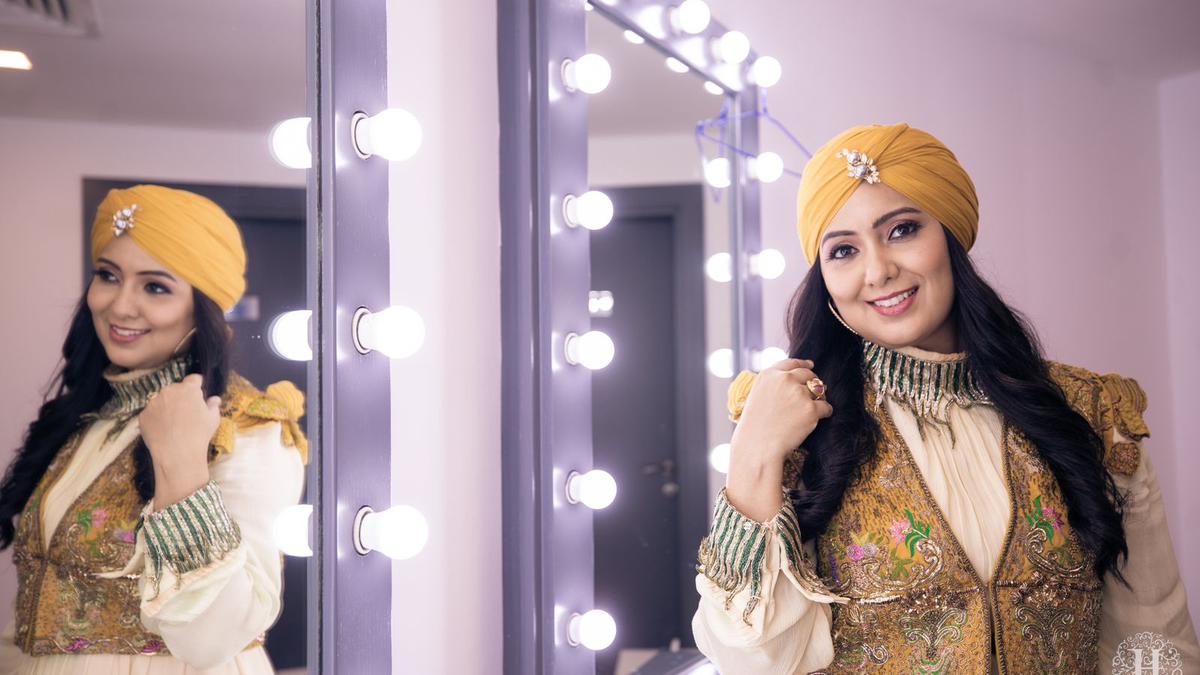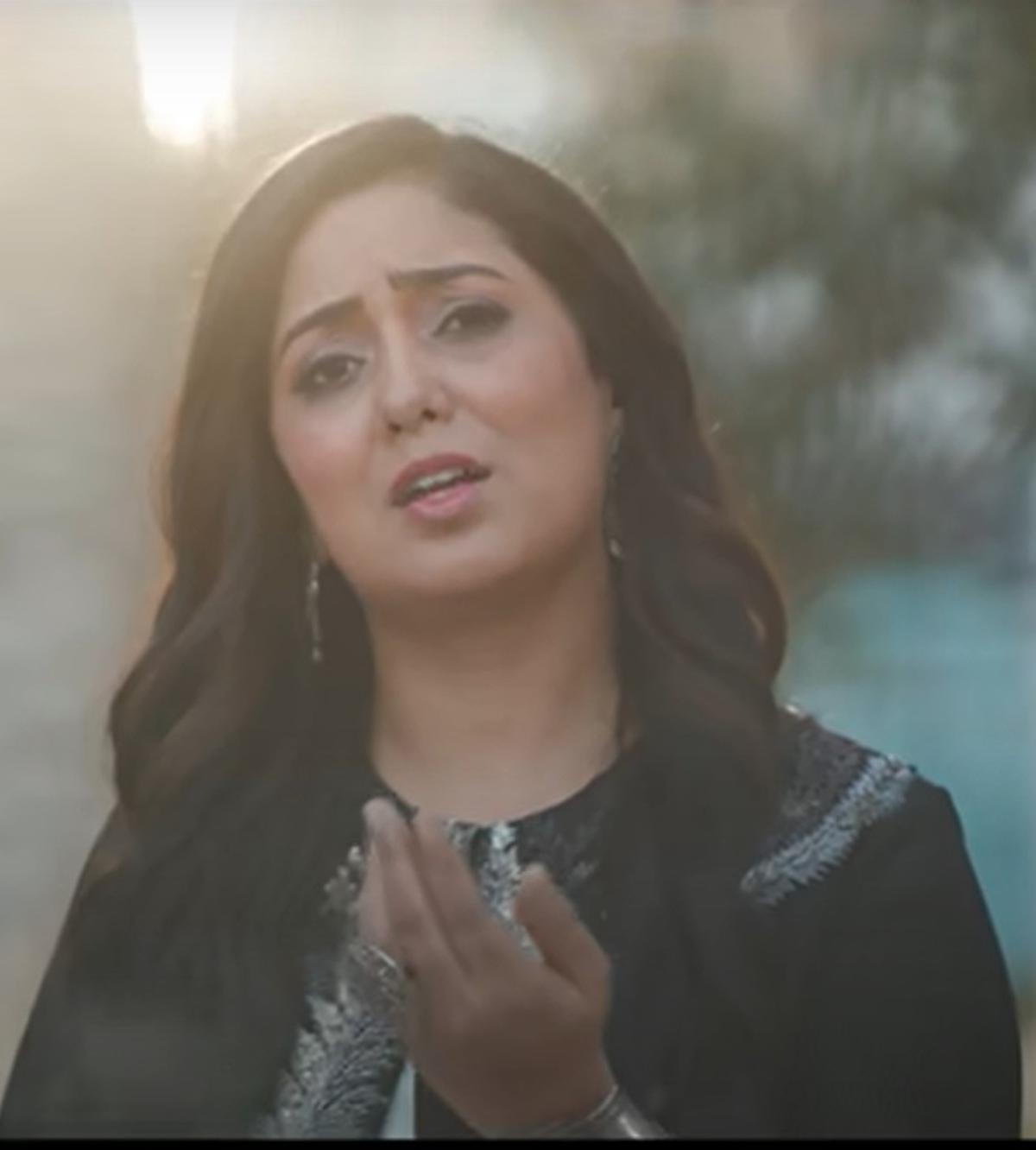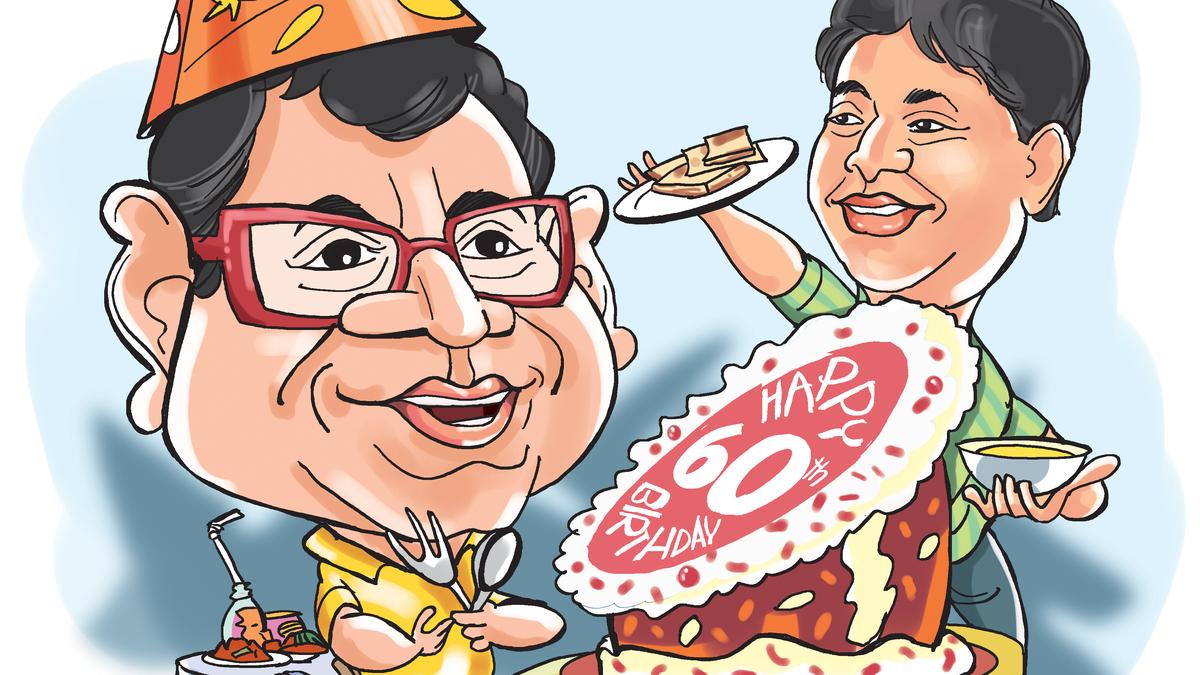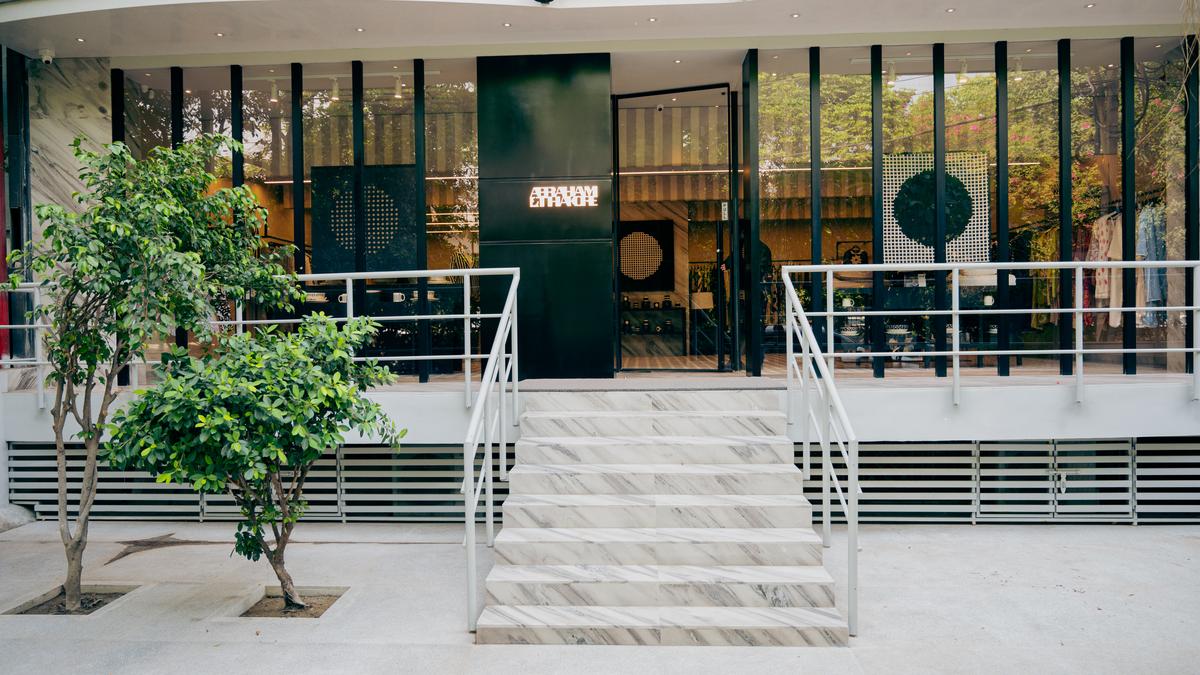
Certain voices do not just sing; they become a part of our lives. Harshdeep Kaur, with her mesmerising rendition of AR Rahmanâs âEk Onkarâ from the 2006 film Rang De Basanti, did not just create music; she crafted a daily ritual for many â a melody that embraced mornings, adorned ring tones and graced special occasions, evoking a myriad of emotions.
Harshdeepâs musical journey is multifaceted, extending far beyond Bollywood music. Known for songs such as âKatiya Karoonâ, âZalimaâ, and âKabiraâ, she has established herself as a versatile artiste with a knack for stirring souls, mainly through Sufiyana singing.Â
Just days after the release of her Punjabi single âYaar Banaaya Tennuâ (composed and produced by Abhijit Vaghani and lyrics by Kunaal Vermaa), a rendition on the pain of separation, Harshdeep joins us over a video call and shares the making of her latest video single, her enduring collaboration with AR Rahman, her musical journey, and the significance of choosing to wear a turban during her performances.
What inspired you to create the deeply melancholy song âYaar banaaya tennuâ? It feels sad and emotional…

Harshdeep from the video, âYaar banaaya tennuâ
As a musician, I enjoy exploring different genres. My recent releases have covered devotional songs, dance tracks, and now a sad song with âYaar banaaya tennuâ. These songs allow me to emote and connect with listeners on a deeper level, evoking cherished memories and emotions. I want my music to be a part of peopleâs lives, and sad songs often resonate strongly during solitary moments.
Your rendition of âEk Onkarâ has garnered immense popularity. What does this shabad mean to you personally?
âEk Onkarâ signifies the oneness of God, an impactful concept. Singing this prayer has connected me deeply with my audience, bringing many blessings and moments of peace. Itâs humbling to know that my voice has become a part of peopleâs daily routines and special occasions. Ranveer Singh told me that he starts his day with my voice and wanted me to sing âEk Onkarâ on the most important day of his life â at his wedding with Deepika Padukone in Italy, and I did. Hearing how important âEk Onkarâ is in peopleâs lives humbles me immensely. I feel grateful every second, thanking God and my stars, especially Rahman sir, for allowing me to sing this prayer, which is significant in our religion.
You have been instrumental in modernising Sufi singing for the current generation. What inspired you to delve into Sufi music?
Growing up, I was influenced by legends such as Reshma Ji and Rahat Fateh Ali Khan. Their soulful music and deep lyrics captivated me, leading me to explore the spiritual depth of Sufi compositions. My unique voice texture sets me apart, which also suits these songs. As listeners began connecting with my Sufi renditions, I delved further into this genre, enjoying its soulful and calming nature.
How has your collaboration with A R Rahman influenced your musical journey?
Working with AÂ R Rahman sir has been a transformative experience. His spiritual approach to music, dedication, and how he treats each composition as a divine offering has inspired me greatly. The recording in his studio usually happens around 3 or 4 am, with just a tiny lit candle. This collaboration has significantly influenced my musical journey, teaching me to approach my work with similar dedication and humility.
Apart from A R Rahman, which other industry figures have significantly contributed to your success as a singer?
Iâm grateful for the opportunities and guidance from music directors such as Shankar-Ehsaan-Loy, lyricists like Javed Akhtar and Gulzar sahab, and composers including Pritam, Himesh Reshammiya, Vishal-Shekhar, and Amit Trivedi. Each collaboration has been a learning experience and has enriched my journey as a singer. Amit has always experimented with my voice. So when you listen to songs Iâve sung for him, youâll see I sound slightly different in his compositions.
You have had a long and successful career starting at a young age. How do you manage to stay relevant and avoid burnout?
Yes, I recorded my first song at 16. Constantly updating oneself is key to longevity in the industry. Adapting to changing times, focusing on quality over quantity, and setting new goals motivate me. However, Iâve been fortunate to have a supportive family whose presence has been crucial in maintaining a balanced and fulfilling personal life alongside my career.
Social media has both benefits and drawbacks for artistes. How do you cope with negativity and pressure in such a digital landscape?
While social media offers a platform for artistes, it also brings challenges like instant feedback and negativity. Iâve seen how it can affect young artistes and lead to undue pressure. A strong support system, including family and friends, is essential to navigate these challenges and maintain mental well-being.
Your music spans various genres. Do you have a favourite genre or style that you feel most connected to?
I enjoy singing across genres, each offering its unique charm. What matters most to me is a good composition with meaningful lyrics. While I appreciate versatility, I prioritise songs that allow me to express myself authentically and connect with listeners emotionally.
Unlike what we see regarding the fate of the participants in singing reality shows, you have had a successful career after a reality show (Junoon – Kuchh Kar Dikhaane Ka) win. What factors do you attribute to your continued success?
While the reality show gave me initial recognition, my focus on quality music, versatility, and maintaining a long-term perspective has been crucial. I believe in enjoying the art of singing rather than treating it as a competition, which has helped me sustain a fulfilling career over the years.
You have sung in multiple languages, including South Indian languages. How open are you to experimenting with new sounds and languages in your music?
I love exploring new languages and sounds in my music. Whether itâs Telugu, Tamil, Malayalam, Bengali, Odia, or Punjabi (my mother tongue), each language offers a unique musical experience. Clear diction and a love for learning pronunciation help me connect with diverse audiences and enjoy the richness of musical diversity. I find Kannada and Malayalam slightly tougher than Telugu and Tamil. Telugu has so many Sanskrit and Hindi words that make my pronunciation easy while singing Telugu songs.
Lastly, could you share the significance of your turban? Is it a style statement, or does it hold a deeper meaning for you?
Tying a turban is a part of my identity and carries deep significance. It represents responsibility, spirituality, and a connection to my roots. I learnt to tie a turban from my father, and started on the reality show Junoon... while singing spiritual Sufi songs. That was because I wanted to cover my head. Little did I know that it would become a style statement. Over time, I noticed other girls covering their heads like me when singing Sufi songs.
Source | Powered by Yes Mom Hosting






